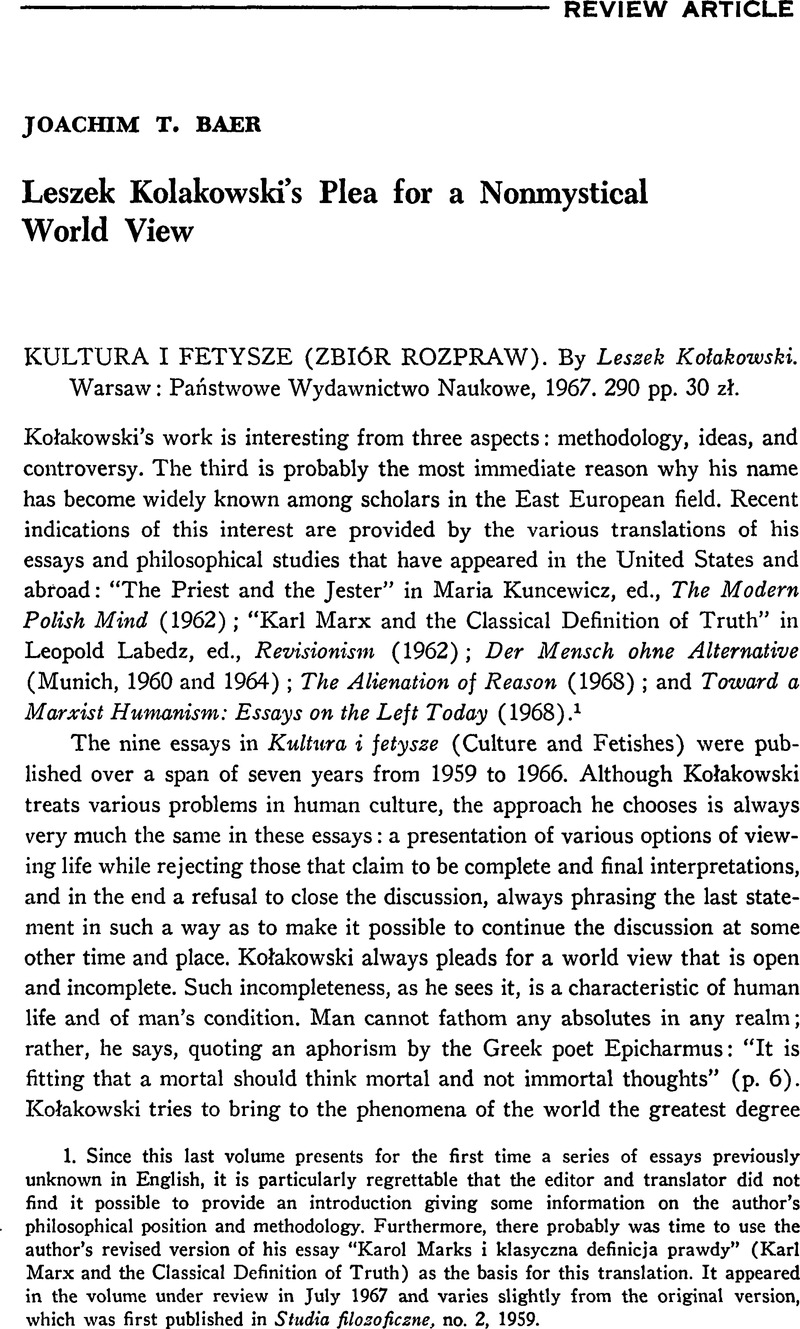Published online by Cambridge University Press: 27 January 2017

1. Since this last volume presents for the first time a series of essays previously unknown in English, it is particularly regrettable that the editor and translator did not find it possible to provide an introduction giving some information on the author's philosophical position and methodology. Furthermore, there probably was time to use the author's revised version of his essay “Karol Marks i klasyczna definicja prawdy” (Karl Marx and the Classical Definition of Truth) as the basis for this translation. It appeared in the volume under review in July 1967 and varies slightly from the original version, which was first published in Studio filosoficzne, no. 2, 1959.
2. The reader interested in the question of freedom and responsibility as treated by Sartre should read the study by Francis, Jeanson, Le ProbUme moral et la pensée de Sartre (Paris, 1947).Google Scholar
3. Leszek, Kotakowski, Der Mensch ohne Alternative (Munich, 1964), p. 140.Google Scholar
4. In connection with the upheaval at the Polish universities in March 1968, Professor Kolakowski was dismissed from his position in the Department of Philosophy at Warsaw University as well as from his position at the Institute of Philosophy and Sociology of the Polish Academy of Sciences. He taught at McGill University, Montreal, Canada, during the academic year of 1968/69, and has accepted an appointment as visiting professor of philosophy for 1969/70 at the University of California, Berkeley.
5. I owe this hint to Professor Wiktor Weintraub of Harvard University.